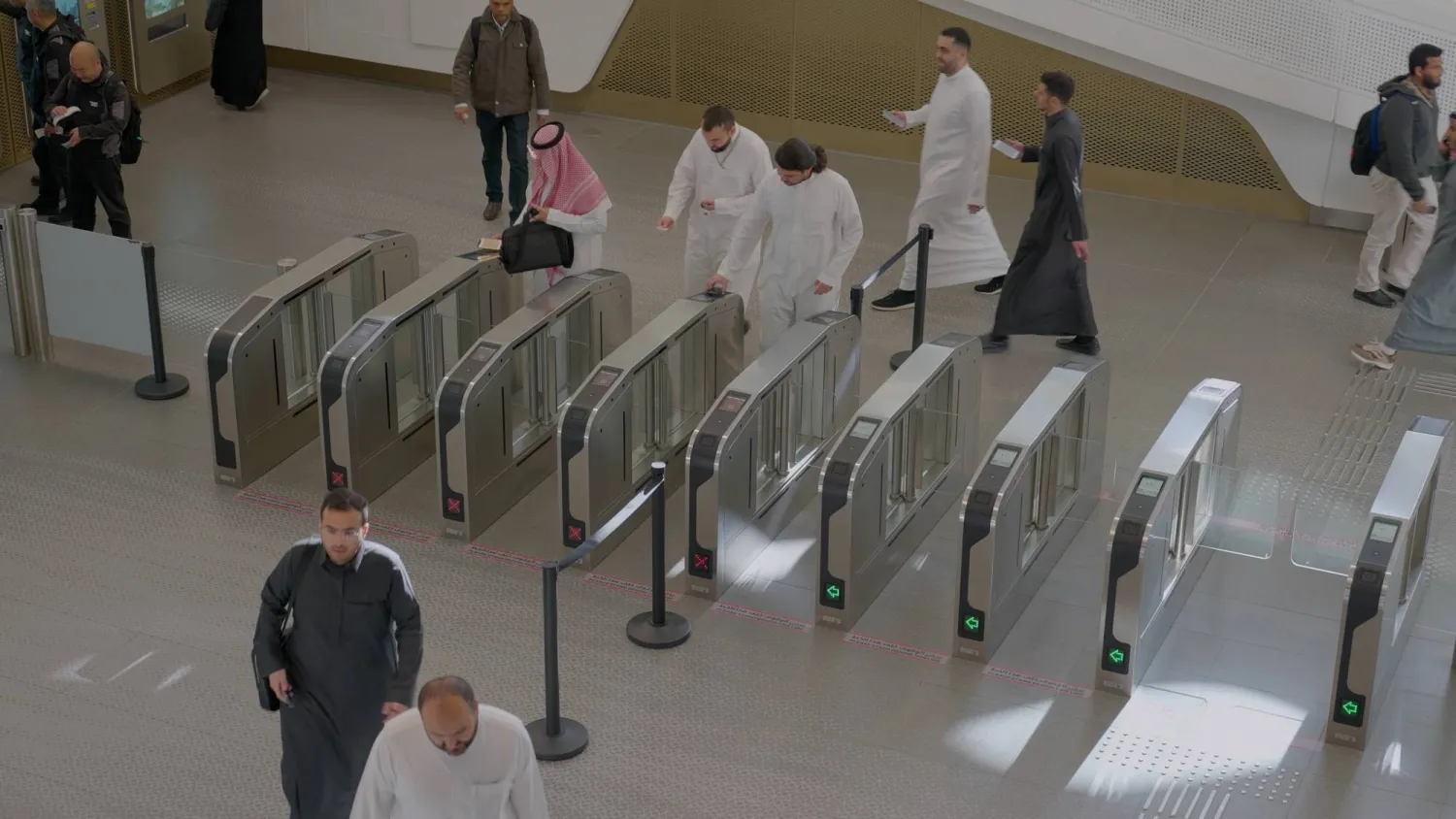The Riyadh metro, a new addition to the city's transportation network, is becoming a preferred option for many residents.
It helps them complete tasks and run errands during Ramadan, offering a respite from street congestion, car traffic, and the anxiety of the last hours before sunset.
During Ramadan days, Asharq Al-Awsat joined several metro rides, observing varying crowd levels throughout the day. The peak rush hour occurs when employees finish work, just before Iftar.
The city remains quiet around midday, with most passengers occupied in reading the Quran and reciting supplications. However, stations become crowded as the Maghrib call to prayer approaches, coinciding with the time when many employees head home.
To adapt to the changes brought by Ramadan, including altered working hours and meal times for Iftar and Suhoor, Riyadh’s public transport authority has announced new daily operating hours. The metro will run from 8 a.m. until 2 a.m. to facilitate travel during the holy month.
Asharq Al-Awsat observed the flow of passengers at the newly opened Qasr Al-Hokm station, one of Riyadh’s latest metro stops. The station has become a popular choice for many shoppers during Ramadan, as it is surrounded by traditional markets in the heart of the city.
After the afternoon prayer on the second day of Ramadan, the station began to see a gradual increase in traffic. Metro riders started arriving after finishing work or completing their shopping at the historic Deira markets, a popular destination for people to fulfill their needs during the holy month.
As the train prepares for departure, passengers continue to stream in, with the journey passing through several stations before reaching the King Abdullah Financial District (KAFD) station, a key hub where commuters disperse to their various destinations.
Inside the partially filled train, passengers make use of their time by reading the Quran or browsing through their electronic devices, keeping up with their daily Quranic recitations.
On the way to the Financial District station, the blue line stops at several stations along the route. At each stop, more passengers board, gradually filling the train.
As the journey continues, many passengers take the opportunity to read the Quran, making the most of their time before reaching their destination.
By the time the train reaches the Financial District station, the crowd has grown significantly, coinciding with the approaching Maghrib call to prayer.
People flow in nonstop, heading toward their various destinations, while passengers scramble to catch their trains and reach their destinations on time.
On the return journey from the Financial District station, many passengers rush to catch the next train as the metro car fills with people heading back from central Riyadh to the various southern destinations.
The crowds grow denser after official working hours end and the Maghrib call to prayer approaches.
With each stop, the number of passengers increases, and the station becomes more crowded.
Some take the opportunity to offer prayers before the call to Maghrib, while others, upon reaching the Qasr Al-Hokm station, prepare for Iftar, either by grabbing pre-packed meals or heading home for their evening meal, close to the station.









